 |
 |
 |
| |
The longitudinal impact of depressive symptoms and frailty on social support: depression contributes to declining social support
|
| |
| |
Depression-But Not Frailty-Tied to Waning Social Support With HIV
International Workshop on HIV & Aging 2023, October 26-27, Washington, DC
Reported by Mark Mascolini for NATAP and Academic Medical Education
More depressive symptoms may contribute to declining social support, according to a longitudinal study of 220 adults with or without HIV at the University of California, San Diego (UCSD) [1]. Frailty did not affect social support in the same analysis. [I don't believe that ! frailty can cause lack of social support, Jules]
UCSD researchers hypothesized that both depression and frailty could lower social support. Depression may do so by leading people to withdraw from social situations and thereby weaken social connections. The physical limitations of frailty could prevent people from engaging in social activities and so erode social connections. People with HIV run a particular risk of lowered social support via these pathways, the researchers contended, because depression affects a high proportion with HIV, who become frail at a younger age than people in the general population.
To test these hypotheses, the UCSD team collected longitudinal data from 220 people taking part in the Multi-Dimensional Successful Aging Among HIV-Infected Adults study. In this group 122 people had HIV infection and 98 did not. Study participants averaged 50.9 years in age, 76.8% were men, 60.5% white, 16.4% black, and 18.2% Hispanic.
Assessing depression by the CES-D survey [2], the researchers recorded a median CES-D of 15 (interquartile range 12 to 20) for this HIV-positive and -negative group. A score of 16 or greater identifies people at risk for clinical depression [2]. Gauging frailty according to the Fried frailty phenotype [3], the researchers found that 47.7% met criteria for prefrailty or frailty. Median Duke Social Support Index stood at 8.4.
A mixed-effects regression model adjusting for age and HIV status determined that more depressive symptoms meant lower social support levels (beta = -0.08, P < 0.001) and predicted within-person drops in social support over time (beta = -0.05, P < 0.001). Neither age nor HIV status was associated with the Social Support Index in this model.
Baseline measures indicated that prefrail or frail people had less social support than nonfrail people. But when frailty got added to the model already adjusted for age and HIV status, it was not significantly associated with the Social Support Index (beta = 0.25, P = 0.11), whereas more depressive symptoms remained significantly associated with social support (within-person change in social support, beta = -0.05, P = 0.001; between-person change in social support, beta = -0.09, P < 0.001).
The UCSD team believes its findings "suggest a trajectory of deterioration in social support in the presence of depressive symptoms." The results, they added, "reinforce the interdependence of mental and social health and the need for early intervention on depression."
Link to oral session:
https://www.youtube.com/watch?v=Spy2t42krWA
References
1. Nguyen AL, Ham L, Neelamegam M, Moore DJ. The longitudinal impact of depressive symptoms and frailty on social support. International Workshop on HIV & Aging 2023, October 26-27, Washington, DC. Abstract 14.
2. American Psychological Association. Center for Epidemiologic Studies-Depression. https://www.apa.org/pi/about/publications/caregivers/practice-settings/assessment/tools/depression-scale
3. Fried LP, Tangen CM, Walston J, et al. Frailty in older adults: evidence for a phenotype. J Gerontol A Biol Sci Med Sci. 2001;56:M146-M156. doi: 10.1093/gerona/56.3.m1m46. https://academic.oup.com/biomedgerontology/article/56/3/M146/545770
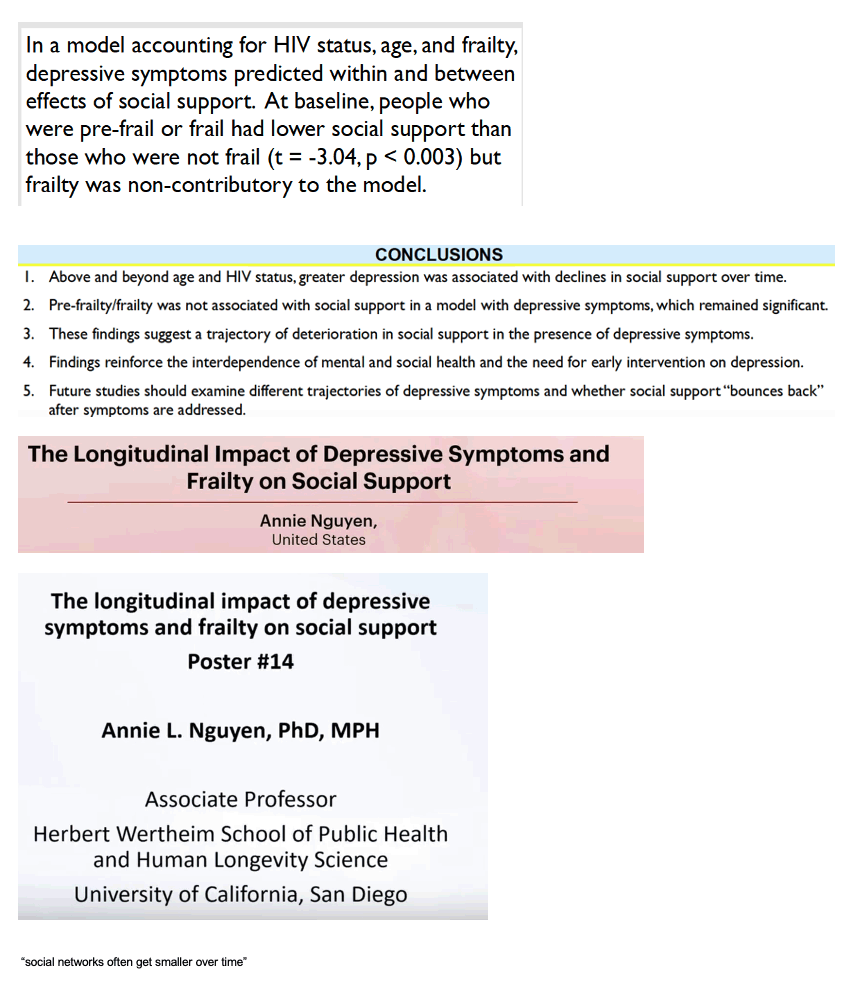
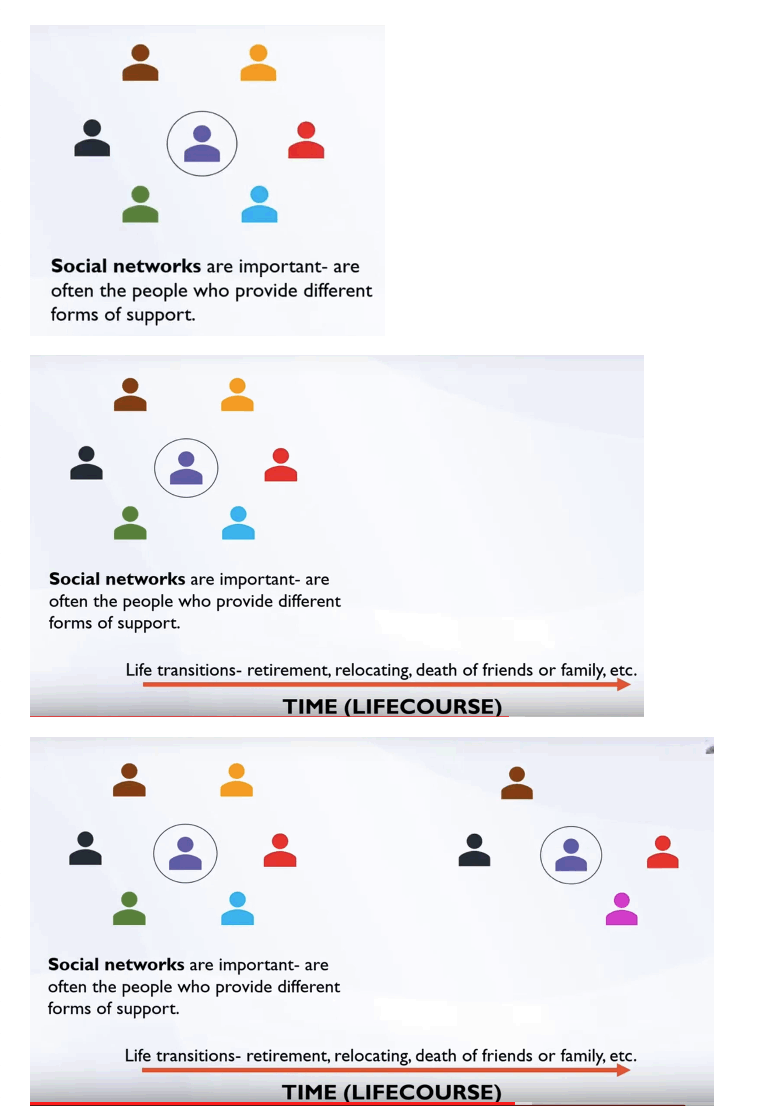
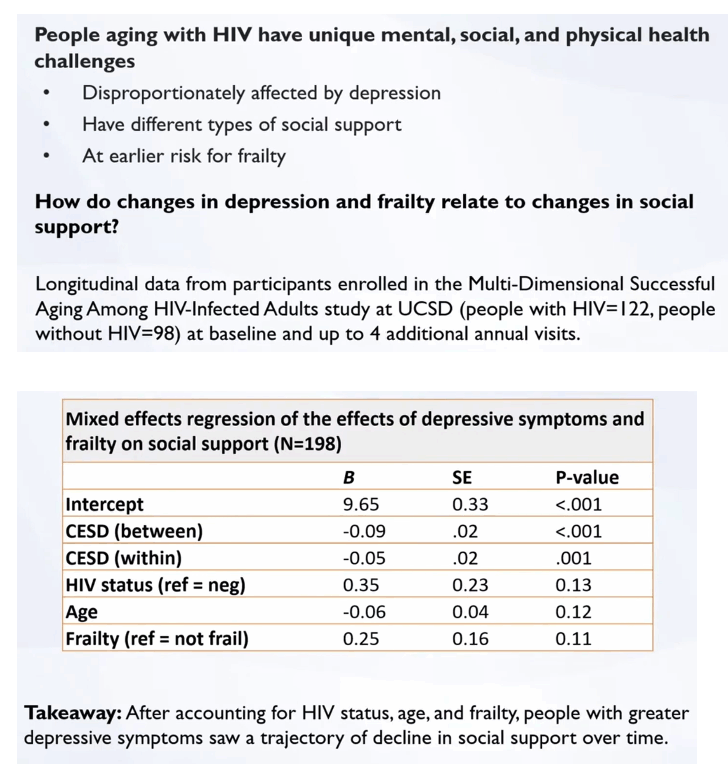
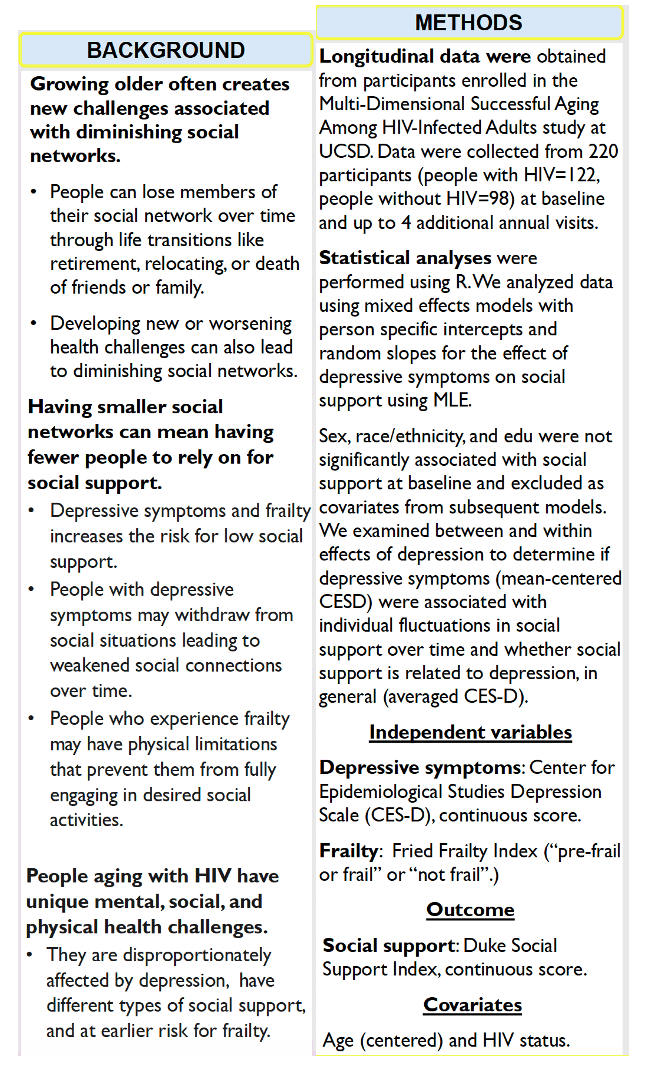
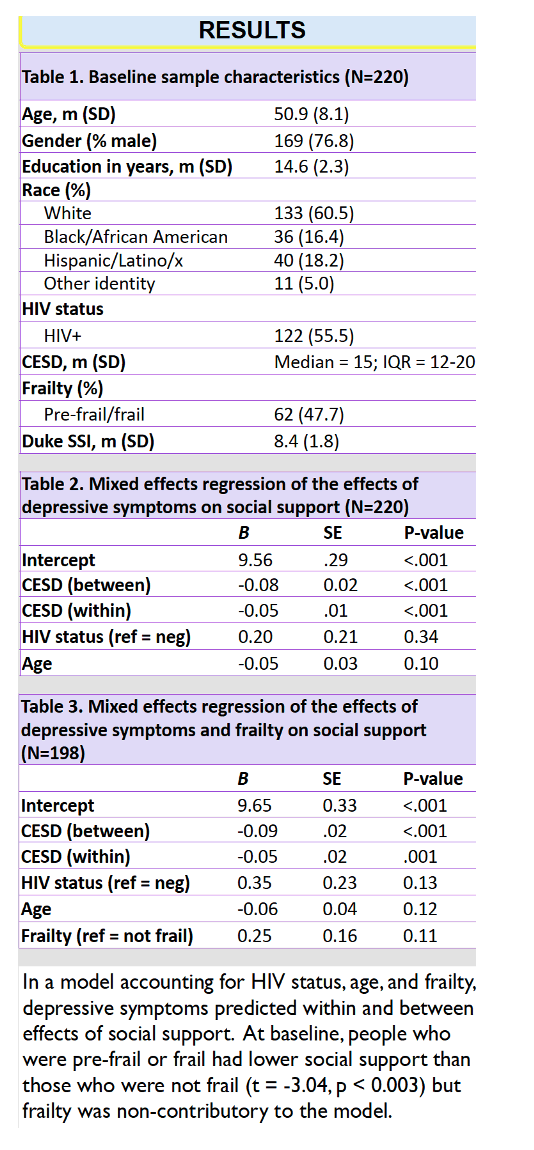
|
| |
|
 |
 |
|
|